








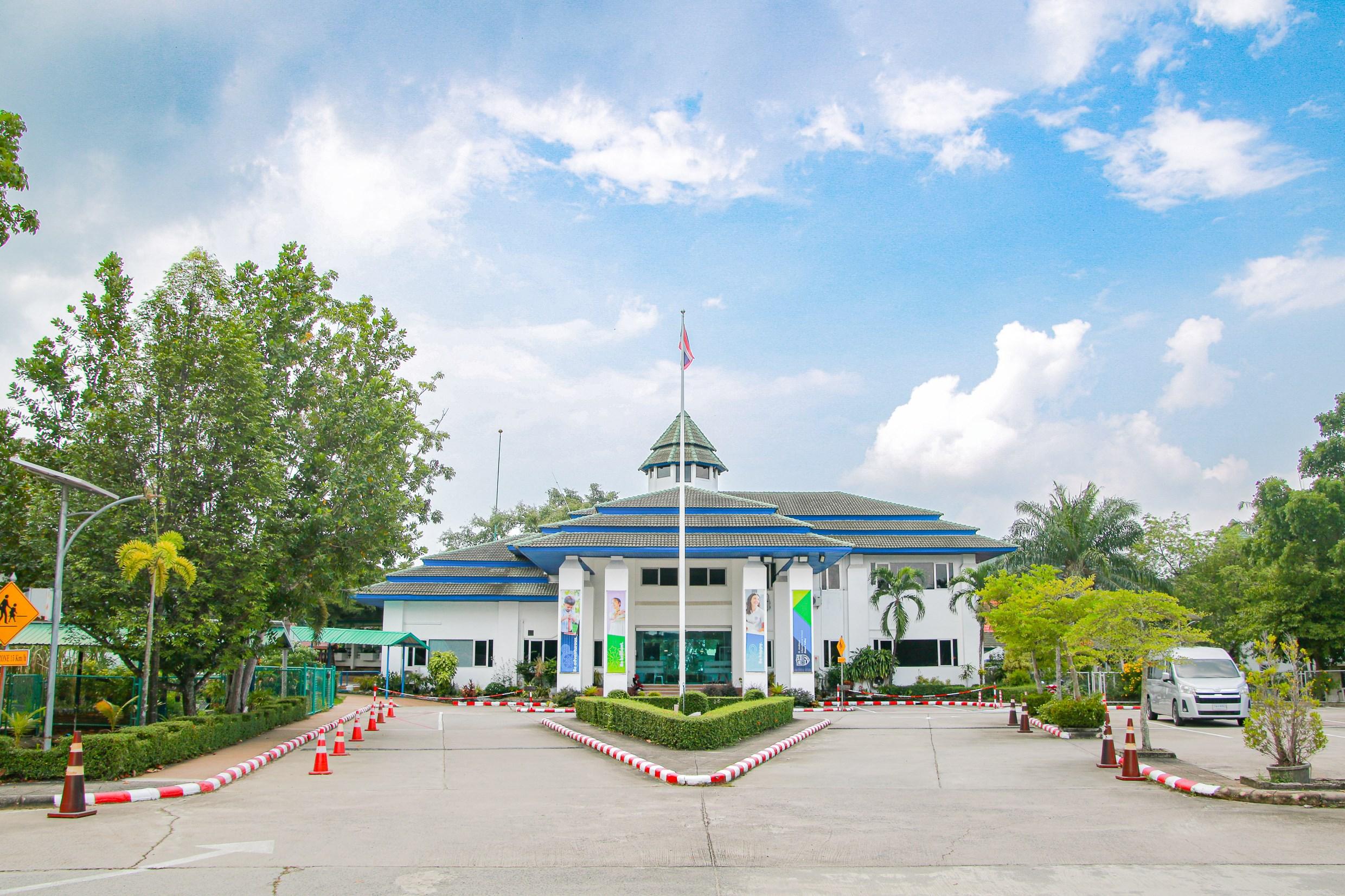


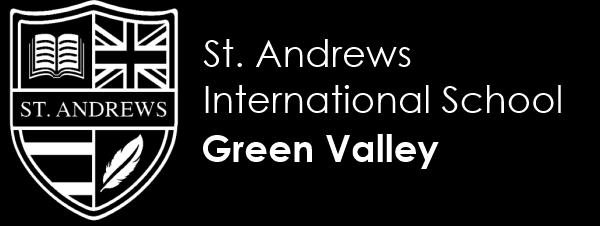
St. Andrews International School, Green Valley is a good school for our global family of 2–18 year olds. Our campus is home to a community of around 400 students from 35 nationalities, all of whom enjoy the individual attention offered by a small school, together with the academic and cultural opportunities of a larger one.
We focus on developing independent, confident, lifelong learners in an environment that develops and challenges students inside and outside of the classroom. We provide a stimulating, child-centered learning environment for our students, offering the best of international learning by integrating the British curriculum with the inquiry based International Baccalaureate Programme (IB PYP and IB Diploma).
St. Andrews International School Green Valley benefits from being part of a group of St Andrews Schools in Thailand including Sathorn, Sukhumvit 107 and Dusit in Bangkok. The school is proud to be part of the global Cognita family of schools, joining forces with one common purpose: building selfbelief and empowering individuals to succeed.
Staff and teachers alike are committed to the following aims, which make our school a unique and enjoyable place to work and learn:
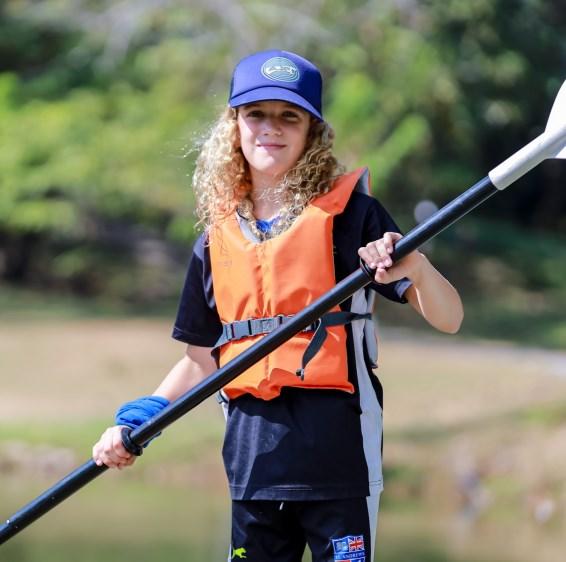
At Green Valley, every day of learning is an adventure! From performing at a Music concert to observing chemical reactions; from roasting marshmallows at Forest School to paddleboarding and horse riding; each child’s experience at school is exciting and personalised.
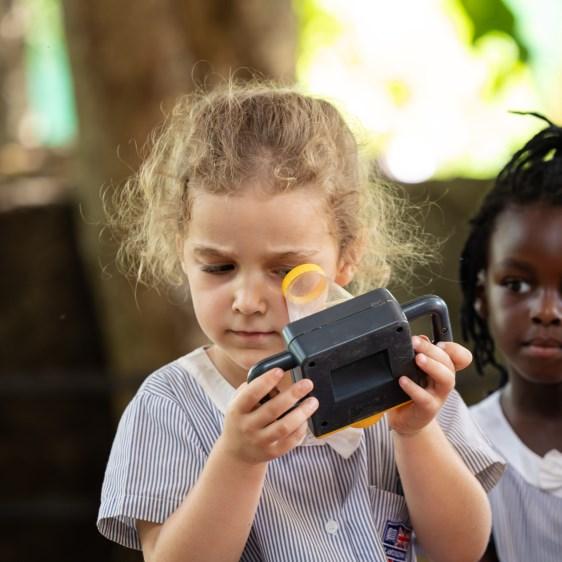
We believe in an education that develops brilliant leaders of the future. Our international curriculum and opportunities beyond the classroom means that we focus on developing and progressing the whole child, setting our students up for the best possible opportunities later in life.
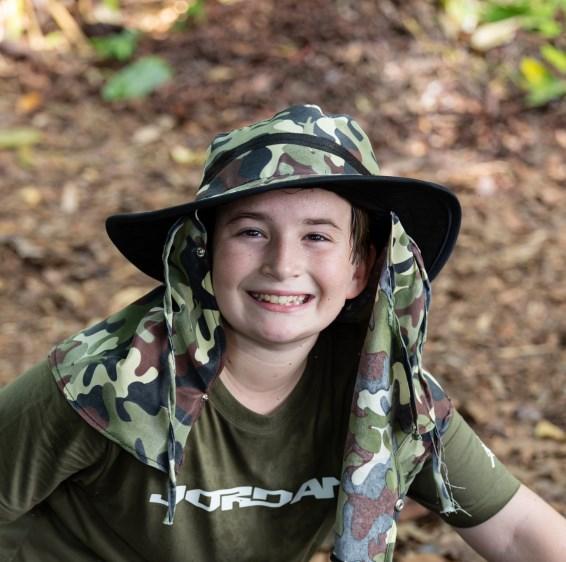
Children learn best when they are happy and healthy. We foster a community of care where every child is known by name. Our hands-on curriculum and small class sizes allow teachers to support our students with learning that is individual to each child, making sure that everyone succeeds.
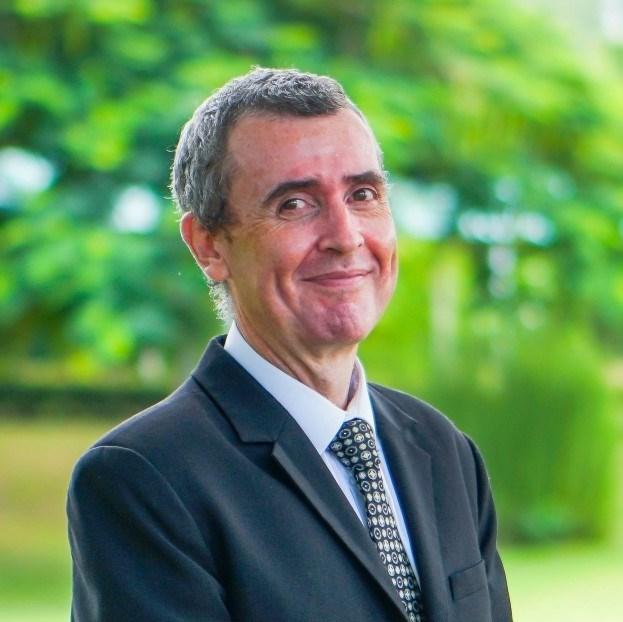

Head of School

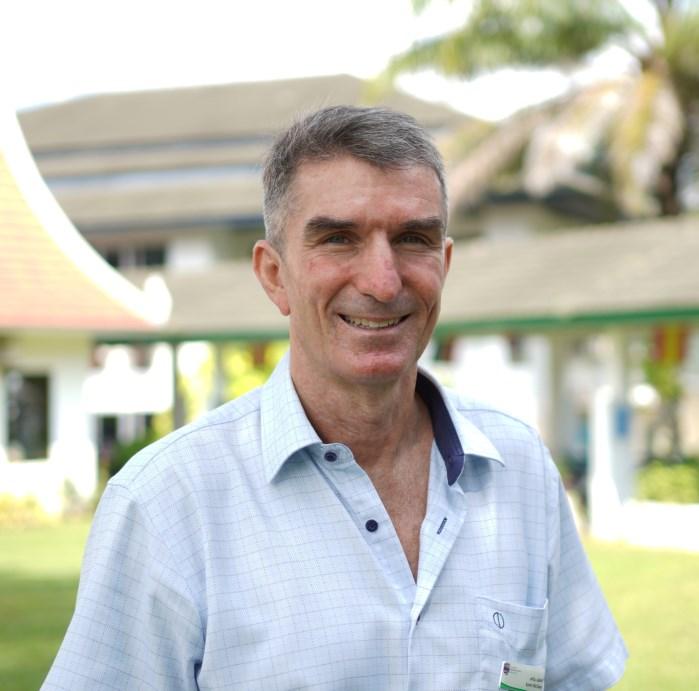
Assistant Head of School & Head of Secondary School
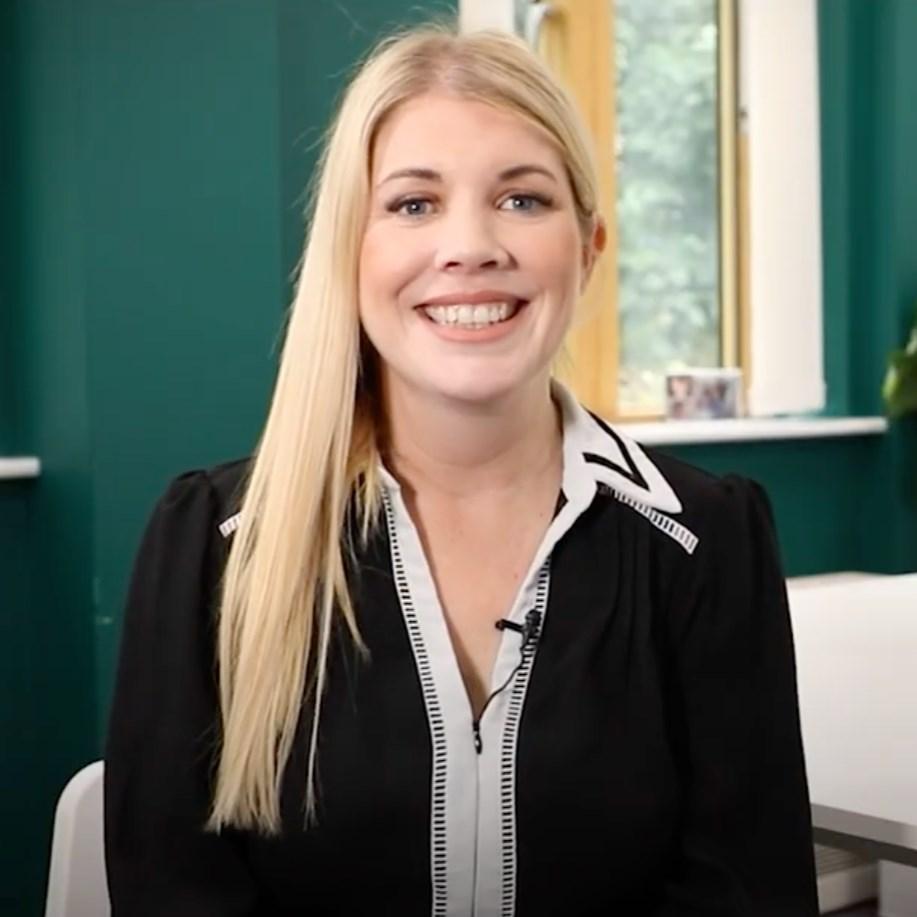

Head of Primary School & Early Years


Assistant headteacher, & DSL

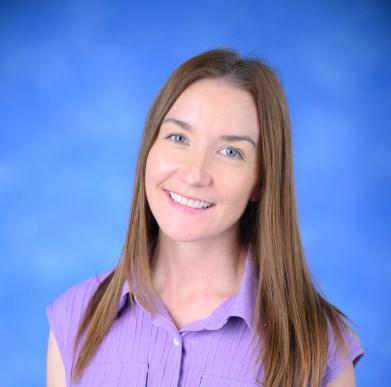


Head of School Teaching & Learning


PYP, Literacy, Maths and Science Coordinator


IBDP Coordinator

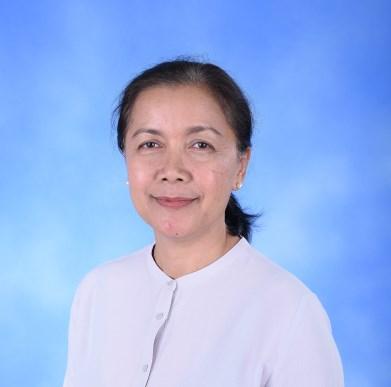
Thailand Head of HR


SENCO

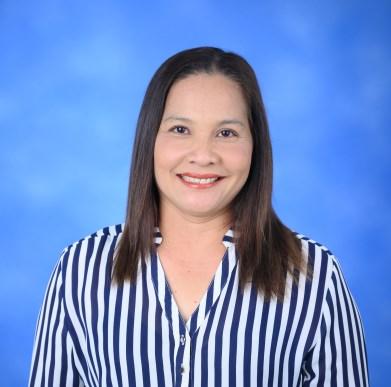
Facility Manager

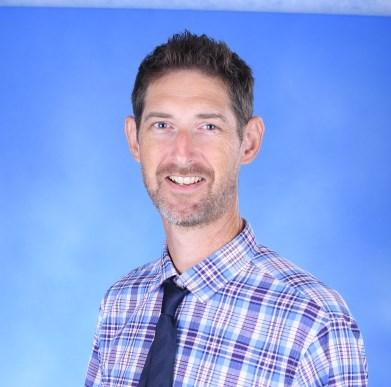
Health and Safety Officer
Complementing these leadership roles, our middle leaders play a vital role, with heads of departments overseeing subject-specific teaching and learning in Secondary, subject leaders guiding curriculum development in Primary and pastoral leaders supporting student well-being across Key Stages 1 through 4.
Code of Conduct
Our Code of Conduct outlines the professional standards expected of all teachers at Green Valley. It guides our interactions with students, colleagues, parents and the community to emphasise a safe, respectful and inclusive learning environment. Key principles include student welfare, professional boundaries, integrity, positive relationships and adherence to school policies and laws.
All staff read and sign the code of conduct at the beginning of year as part of our Cognita Annual Declaration.
Dress code
Staff are expected to dress in a manner which encourages respect from children, parents and colleagues. This is especially the case for our Thai community as they typically dress conservatively, especially women. At the same time, teachers hold a position of great respect in Thai society and we therefore expect our teachers to uphold this image and dress accordingly.
Men should wear closed shoes, tailored trousers and a shirt with a collar. Women should wear smart, practical clothes and avoid wearing flip-flops .
Absence and approved leave
If you are unable to attend school please email Claire McDonald (Head of Primary) before 7:00, stating any duty or CCA commitments. If we are unable to cover a teacher who is absent, you may be asked to put classes together or use your non-contact time to cover the lessons of colleagues who are absent. Teachers need to secure a medical certificate for three or more consecutive days sick. More details about the number of paid days absence and personal days will be provided by HR.
All absences or requests must be recorded using the ‘My Absence’ platform - click here for more information.
Teaching, duties and meetings
All teachers are expected to be onsite 8:00-4:30 (8.00-3.30 on Fridays), attend morning briefings, Thursday morning shares and twilights on Wednesdays after school until 5:00pm.
A teacher’s teaching load can be made up of lessons, CCAs (usually 2) and allowances for positions of responsibility. In addition to this teaching load, teachers are expected to be rostered for at least two duties at break or lunch. Information about duty expectations can be found within the duty rota, shared at the beginning of the year. At home time, teachers need to hand over children, who are being picked up by family members until 4:30. Teaching Assistants will accompany children taking the bus.
Safeguarding
We are very proud of our Culture or Care at Green Valley and every member of staff plays an important role in building relationships with students, supporting their needs and noticing and acting when something doesn’t seem right. CPOMs is our online system for recording and managing all safeguarding and wellbeing information. It provides a confidential record of concerns, actions taken and allows for effective monitoring. Using CPOMs ensures we are all working together to safeguard our students and provides a consistent approach to managing student welfare. More details about safeguarding policies, CPOMS and procedures will be provided by our DSL, Laura Kerr, during orientation.
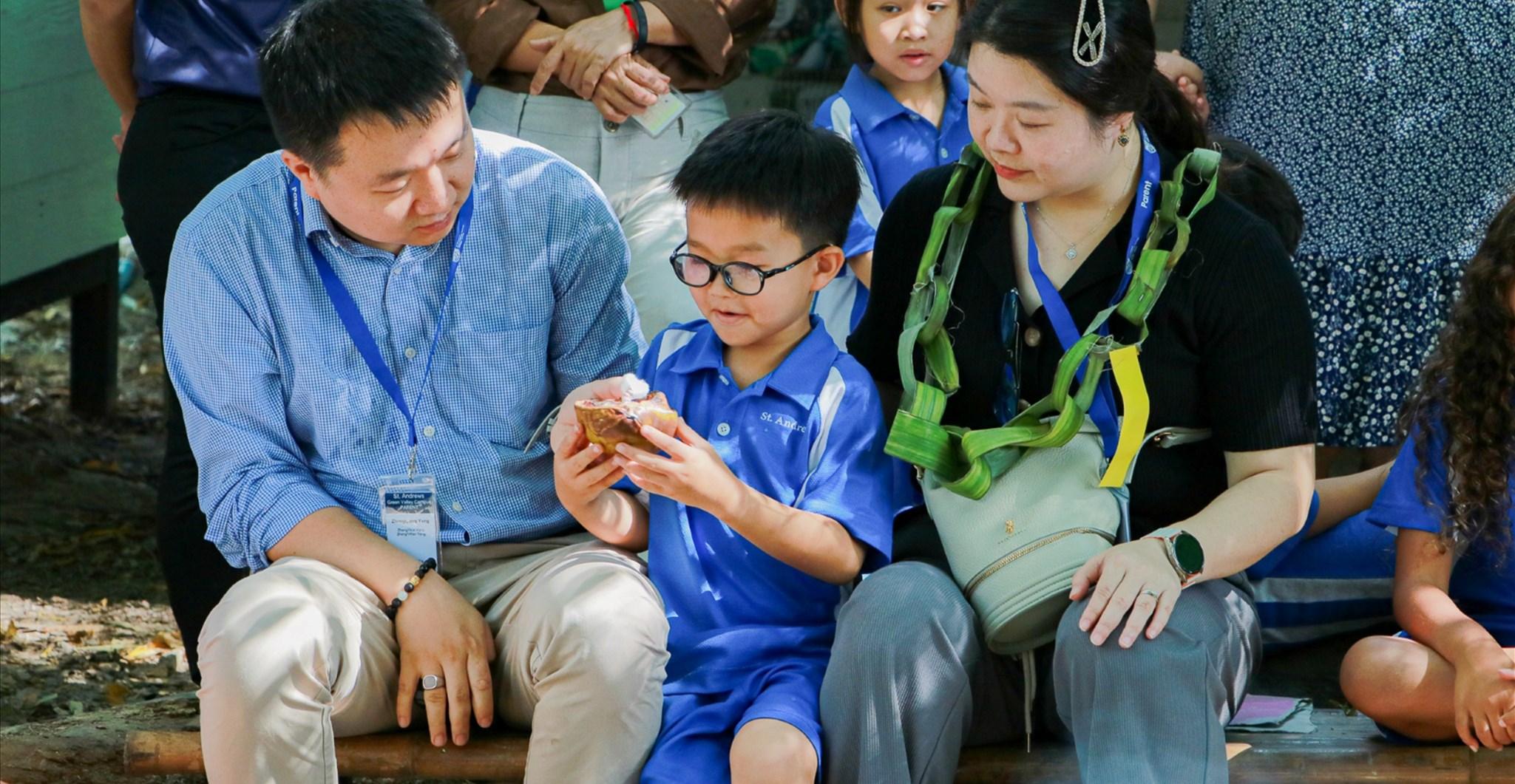
Whistleblowing
If you have any concerns about malpractice, illegal activity or breaches of policy, we encourage you to raise them. This is referred to as "whistleblowing." You can raise your concerns with the DSL in the first instance. The school will handle all concerns confidentially and will protect those who raise them from any form of reprisal.
Lanyards
For security and identification, all staff, parents and visitors are required to wear lanyards at all times on school premises. Staff members wear green lanyards, parents blue lanyards and visitors red lanyards, which are issued upon signing in at reception. Any individual without a lanyard, or any visitor wearing a red lanyard who is unsupervised, should be politely challenged by members of staff. This helps us ensure the safety and wellbeing of our school community.
Student attendance
Good attendance is a key focus in Primary school. Parents should inform the school of absences via email or Seesaw, aiming for 96%+ attendance. Khun Wan (Head of Primary’s Personal Assistant) will contact parents about student absences after ISAM registration and record reasons daily on a proforma (available on the GV landing page) for teachers to check. Teachers should address any absence patterns with the child and then parent if needed, escalating to the Key Stage Leader if attendance doesn't improve. Students below 96% attendance will receive an attendance letter, a parent meeting to discuss barriers, consistent monitoring by Pastoral Leaders and celebration of improvements.
Bullying
We are committed to providing a safe and supportive learning environment free from bullying. Bullying of any kind is unacceptable and will not be tolerated. Our comprehensive Anti-Bullying Policy outlines our definition of bullying, the different forms it can take, and the procedures we follow to prevent and address it.
Our full Anti Bullying Policy can be accessed here.
Digital Safety
Digital safety is paramount at our school. We have a comprehensive Digital Safety Agreement that outlines acceptable use of school IT resources, including internet access, email and social media. This policy covers important areas such as online safety for students, data protection, cyberbullying and use of my devices in school.
Students are expected to sign and agree upon our Digital Safety Agreement, which can be accessed here.
Health and Safety
All staff share responsibility for the health and safety of everyone on school premises, reporting any unsafe conditions to the Ben Shield (Health and Safety Officer) immediately. Cognita and the school will offer the necessary training and competence for all assigned duties such as familiarity with fire, first aid, infection control and manual handling.
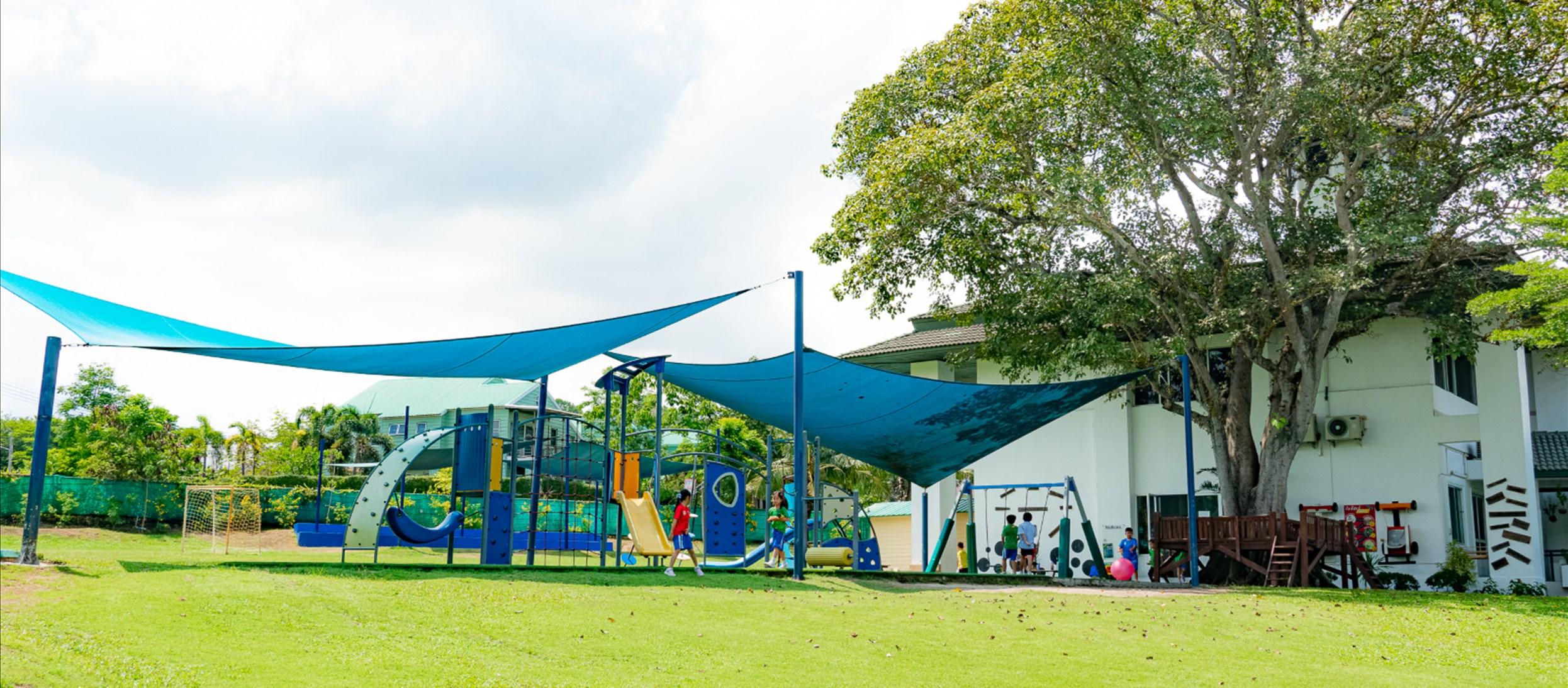
Accidents and injuries
Nurse May will provide details of any medical conditions for your class at the beginning of each year, once parents have completed or updated their child’s medical details. In case of accidents or injuries, the nearest adult will assess the severity. For minor injuries, the individual can rest briefly before being sent to Nurse May. For severe injuries, another adult or child should alert Nurse May. The injured person should not be moved and the adult should remain present until the nurse arrives. Nurse May will inform the Head of Primary, parents and the class teacher of any illness or injury. The Head of Primary will then liaise with the Ben Shield (Health and Safety officer) regarding any dangerous objects or site to implement changes to prevent recurrence.
Air quality and lightning strikes
Given our tropical Asian location, lightning strikes and poor air quality (AQI) are potential concerns. To ensure the safety of our school community, each classroom is equipped with air purifiers and lightning meters are available in the Headteacher's office for those on duty. We monitor AQI hourly via our air monitor. More details about AQI and Lightning Strikes procedures will be provided by our Health and Safety officer, Ben Shield.
To familiarise yourself with our AQI and Lightning Strike procedures, click here.
Fire evacuation
There are detailed instructions in every classroom about the nearest fire exits and signs indicating them. The fire muster point is located at the school’s front entrance. In the event of an alarm, please assist your students to evacuate; do not stop to collect personal possessions. The Head of School will give the ‘all clear’ for learners and staff to re-enter the building, after everyone is accounted for. There will be a fire drill at least twice a year.
Duck and cover drill
A lockdown ‘duck and cover’ drill secures the school during a potential threat so everyone moves quickly to designated safe area, locks doors, turns off lights and remains quiet and out of sight until an all-clear is given by designated staff, via a LINE message. There will be a lockdown drill at least twice a year.
To familiarise yourself with our Duck and Cover procedure, click here.
Security, maintenance and maids
The school employs security guards that provide 24/7 security, a maintenance team and maids. Although they have basic English, they are very helpful and will do everything they can to help you. Any maintenance requests should be posted on the online maintenance request form on the GV landing page, which will be processed and managed by Khun BC, our Facility Manager.
Registration and start of the day
Playground supervision begins at 8:00 when the school gates open. Parents typically accompany children to classrooms to organise their bags etc. Teachers must be in their classrooms by 8:00 to greet students and parents until line-up at 8:15. Years 1-4 line up in the primary playground for the Thai national anthem, while Years 5-6 line up behind the TB2 building. Please note, Early Years do not need to line-up and will remain in their classrooms.
Registers need to be completed on ISAMS (accessible from the GV landing page) between 8:20 and 8:40 am. Teachers need to forward any parent absence communications to Khun Wan (Head of Primary's Personal Assistant). ISAMS account and two-factor authentication setup will occur during your orientation.

Timetable
Here is an example of a KS1 timetable. Please note that lessons are typically 40 minutes in length and most children participate in the CCA program, remaining onsite until 4:15. If a student is not attending a CCA they need to be sent to the main reception at 3.15 to be collected by their parents, whilst supervised by the receptionists.
Please note:
• Lunchtimes for Early Years are 11:40 - 1:10.
• Lunchtimes for Years 5 and 6 are 12:50 - 1:50.
• Early Years assembly is Tuesday at 9:15, once the children are settled into a routine.
• Every Thursday, all primary children reflect on what they are thankful for and complete a ‘Thankful Thursday’ reflection card which is displayed in each corridor.
• More information about lesson allocations for your phase will be given during orientation.
Breaktimes and lunchtimes
Students in Early Years - Year 4, who purchase school meals, will have their breaktime snack delivered to their classrooms where they will eat it. For this reason, teachers may want to begin breaktimes 5 minutes earlier. Years 5 and 6 will get their snack from the Canteen at breaktime.
All children will eat their lunch in the Canteen, whether this is purchased or brought in from home. For children and staff purchasing lunch, we operate a cashless system via the Siam Caterers app, where you can access healthy, high quality meals. New teachers will be issued a card during orientation and more information will be given about the payment process.
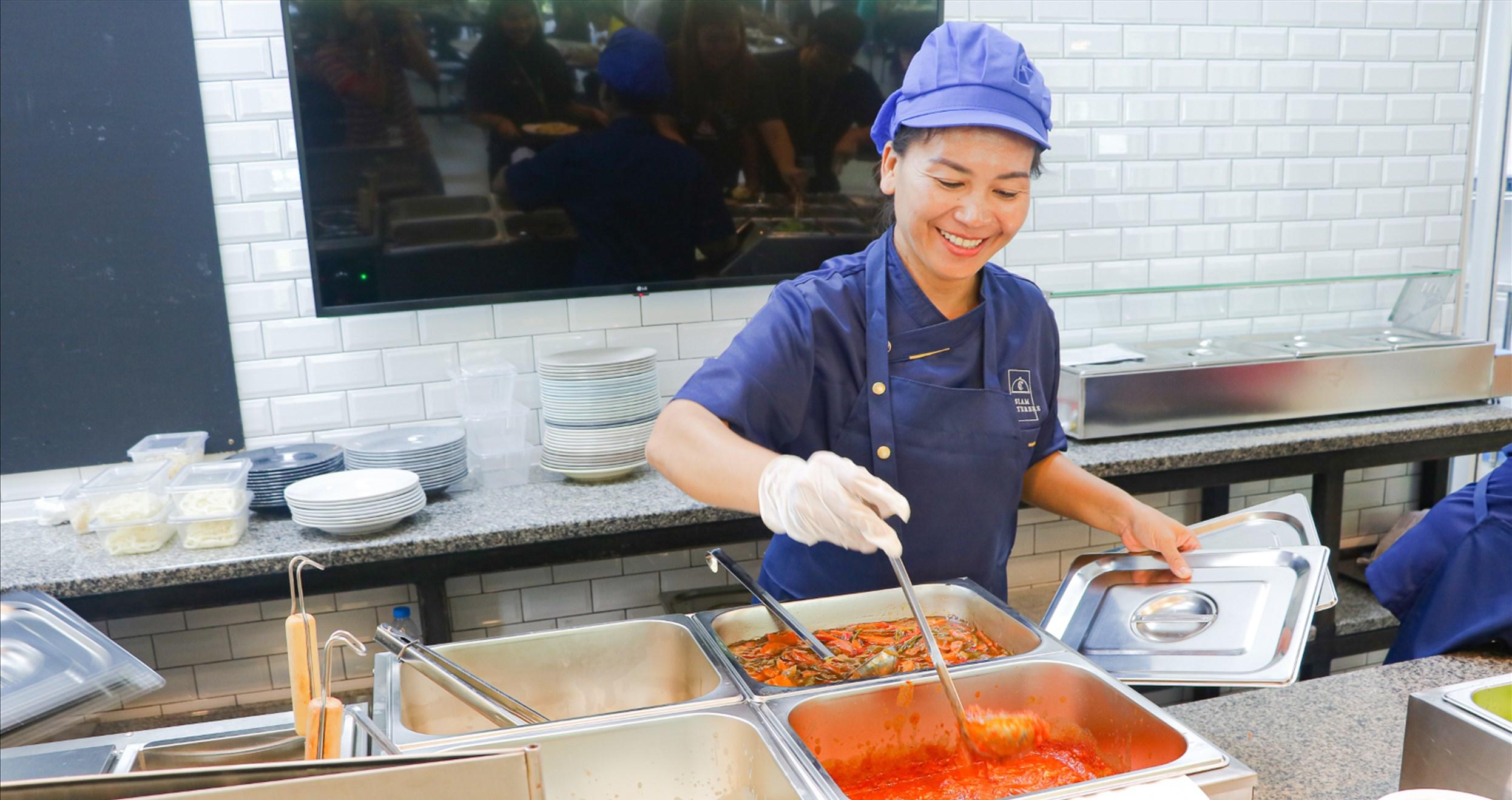
Island communities
Students and teachers are put into island communities (similar to a house system) to build community, belonging, healthy competition and student leadership. Lists can be found on the GV landing page.
Teachers use ‘Class Dojo’ to give students points for good behavior, participation or effort. When a student earns 10 points they can be converted into island tokens and put into the island community token boxes. Tokens are then converted to island community balls and then counted and announced during assemblies.

Assemblies
Primary assemblies are held every Friday at 8:40 am to celebrate student learning and share information. Throughout the year, each class will take the lead of an assembly by showcasing a PYP ‘Learning Journey’ for one unit of inquiry. Teachers and TAs are responsible for student supervision during assembly, when they are not participating in CPD sessions. ‘Star of the Week' certificates are awarded weekly and teachers need to submit their nominations on Thursdays. More information will be sent by Khun Wan (Head of Primary’s Personal Assistant) via email.
Early Years assemblies are held every Tuesday at 9:15 am for similar purposes, while the Toddler Group is hosted in the Pre Nursery classroom.
Whole school assemblies (Nursery-Year 13) are held for Loy Krathong, Songkran, Christmas and end of year.
Booking facilities and resources
Bookable rooms (library, kitchen, computer rooms, Black Box, etc.) can be reserved using the booking sheets on the GV landing page. Classes have access to iPads and Chromebooks but this should be coordinated with other teachers within your year group/corridor. Computing resources are also available for booking; contact Cindy De Borger (Primary ICT and Computing Coordinator) for details.
Other curriculum resources are located in the TB1 storerooms and each EY building. Ask your Teaching Assistant or Key Stage Leader for assistance locating resources. Resource orders should be submitted to Faye Wood, who will consult with the Head of Primary regarding the budget.
Homework
We ask parents to read, or listen to their child read each day using the FFT Phonics eBooks in EY and KS1 and/or their library book. In KS1 and KS2, each child will have a banded book, eBooks allocated on Bug Club and/or their library book. Each week, KS1 and KS2 children will have weekly spellings to practise at home, followed by a weekly test in school.
We encourage KS1 and KS2 students to practise their maths skills at home, using an online interactive platform called ‘Sumdog’. We also encourage KS2 students to develop their vocabulary, using an online interactive platform called ‘Bedrock’, each week.

Our Early Years and Primary curriculum is a fusion of the British National Curriculum and the IB PYP. This international approach provides a robust academic foundation while fostering inquirybased, child-centered learning that develops essential life-long skills. We believe this blend creates well-rounded learners who are prepared for future success. Learn more about our Primary curriculum and subject specialist subjects in the sections below.
Literacy
We utilise high-quality texts as a springboard for engaging literacy learning opportunities aligned with the British National Curriculum objectives. In Early Years and Key Stage 1, we've recently implemented the "FFT Phonics for All" reading curriculum and assessment framework to provide a systematic approach to phonics instruction.
Moving into Key Stage 2, we use the online reading platform "Bug Club" for ongoing assessment and ‘Bedrock’ an online platform that helps students build a strong vocabulary. We also have a subscription to an online newspaper called ‘First News’, our school ID is NWS7SHD4. Here you can receive the weekly paper and access to teaching resources. First News can also be accessed by students using the iPads, via an installed app.These resources, combined with your expertise, will empower our students to become confident and proficient readers and writers.
Maths
For maths, we use the White Rose Maths curriculum which promotes mastery, breaks down content into small steps to build deep understanding. White Rose prioritises fluency with number facts, integrates reasoning and uses a consistent lesson structure that revisits concepts regularly. We also use 'Sumdog' an online platform, which is a curriculum aligned game-based platform allowing teachers to track student progress and supplement classroom intervention.
IB PYP (Primary Years Programme)
British National Curriculum subjects (art, design & technology, history, geography, computing, and science) are integrated within our transdisciplinary PYP curriculum. This inquiry-based framework fosters curiosity and knowledge through real-world connected units of inquiry, encouraging student agency and lifelong learning skills. All students participate in two annual 'Learning Journeys' to share their learning with parents, with Year 6 engaging in the ‘PYP Exhibition’.
Teachers collaboratively plan PYP units during a dedicated non-contact lesson per week, regularly attended by Faye Wood (PYP Coordinator), who will communicate meeting frequency and expectations. Specialist teachers should also attend planning meetings where possible and liaise with the PYP Coordinator to ensure PYP framework alignment, including transdisciplinary connections, engaging experiences and effective assessment.
All planning must be saved in the Primary (New Allocation) Google folder. Here you access the essential information needed to plan, deliver and assess these subjects at a glance.
Thai
The Thai Ministry of Education mandates rigorous Thai language acquisition for Thai children, who currently receive three lessons per week. All new teachers are required to participate in a Thai Language and Culture Course provided by the school's Thai department.

Dutch Stream
The school offers a Dutch stream to support native Dutch speakers in developing their mother tongue. Students attend Dutch classes during their designated language periods, following the Dutch national curriculum. This program is led by two dedicated Dutch teachers, Mr Kris and Ms Christel.
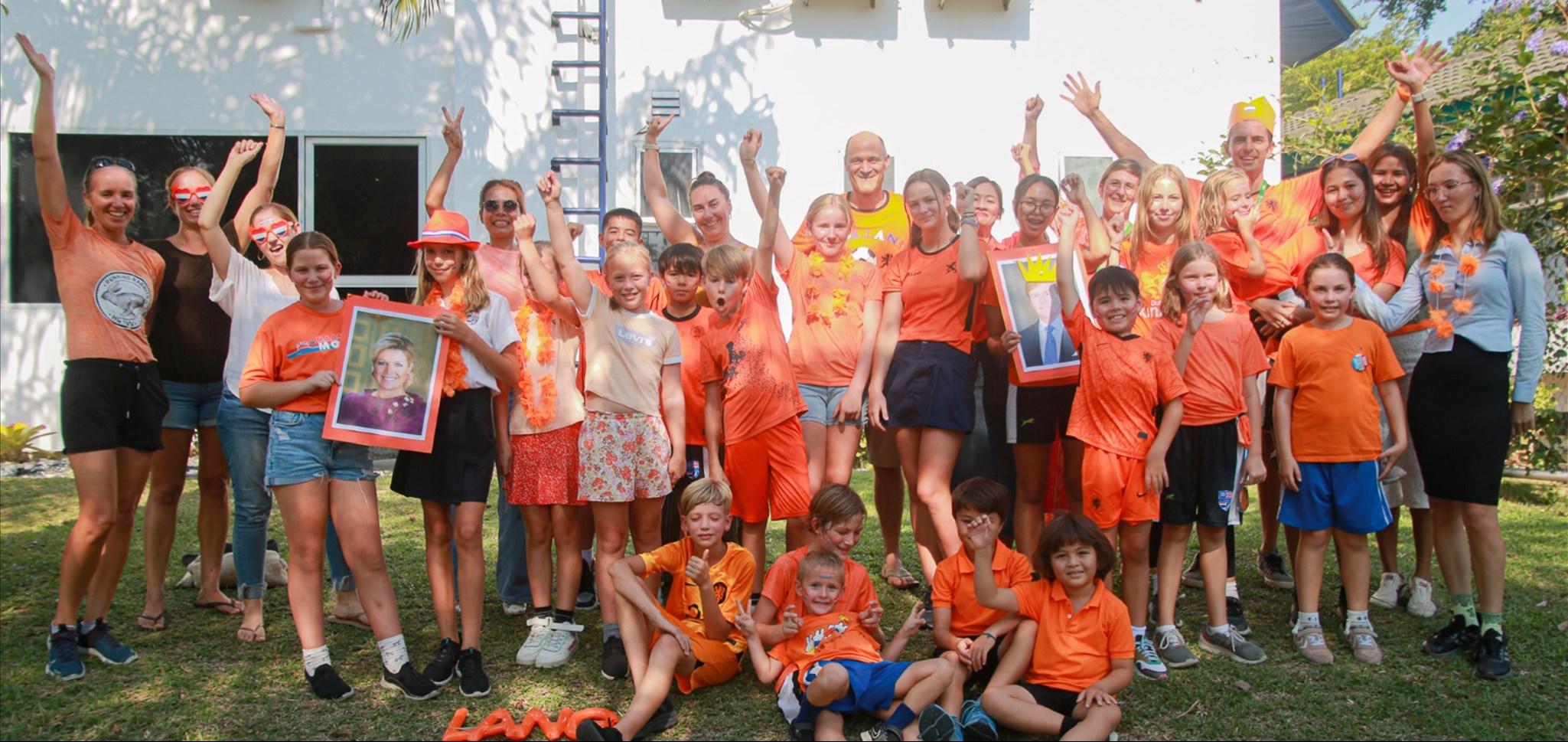
Forest school
All classes will have a fortnightly forest school lesson. Ben Shield (Forest School Leader) will liaise with teachers regarding these lessons and what is required. Teachers, TAs and LSAs need to accompany these lessons due to health and safety reasons. To familiarise yourself with our Forest School Handbook, click here.
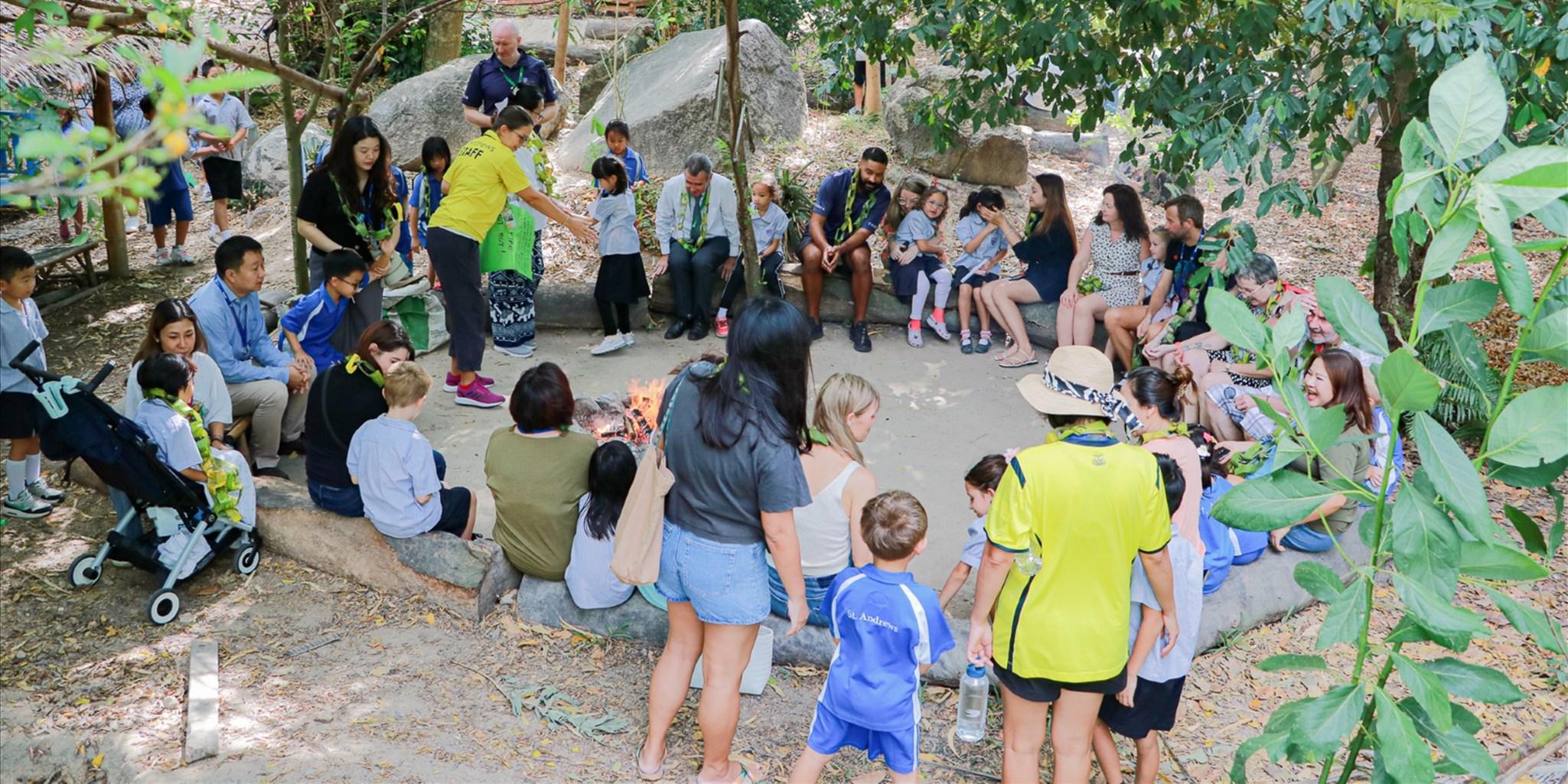
Eco Literacy
Developing students' eco-literacy is a priority at GV, and we've made significant progress in embedding related opportunities within the curriculum. Rosie Giordano, our Eco-literacy Coordinator, will support you in providing further opportunities both within and outside of the classroom.
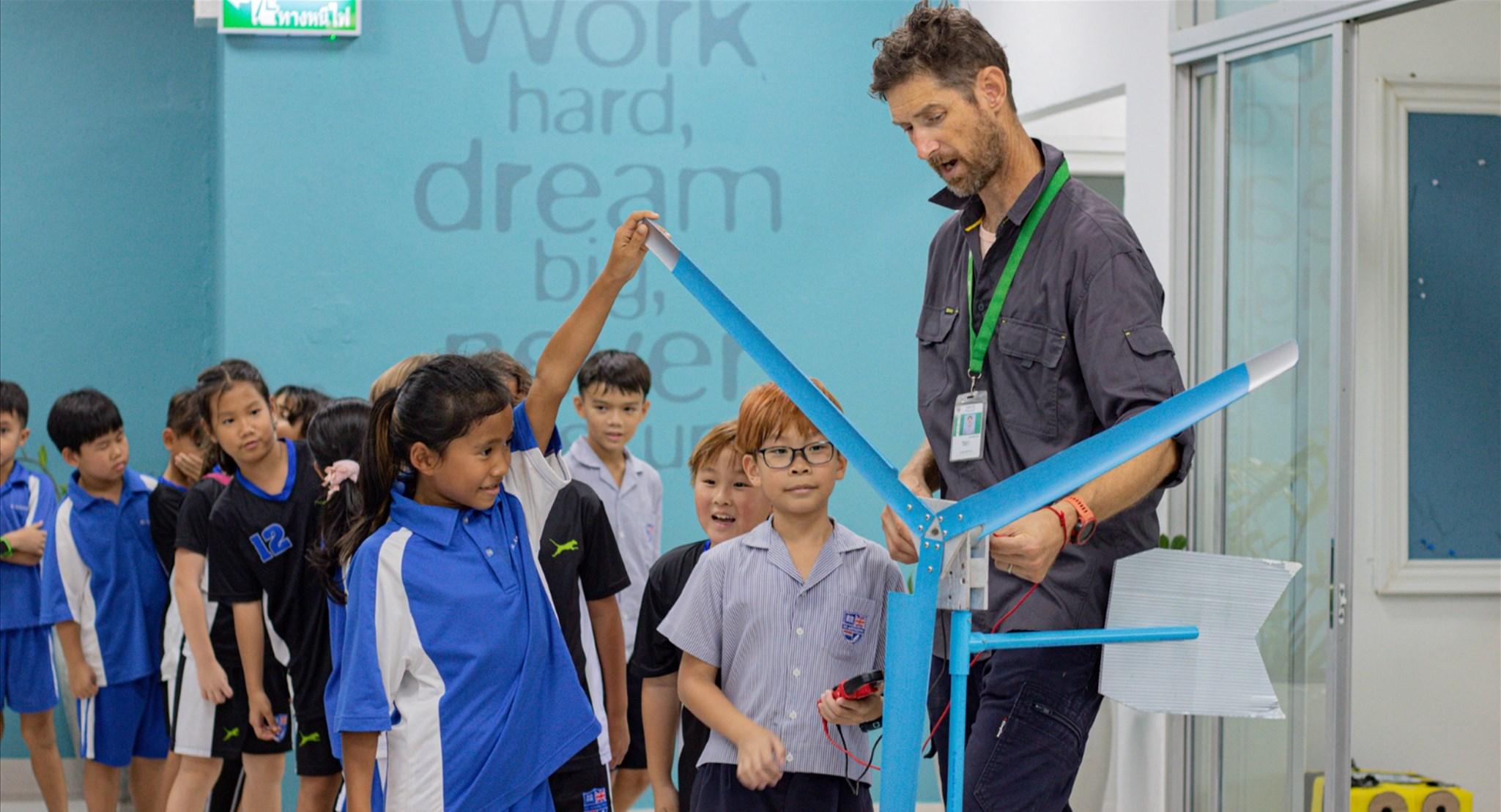
EAL (English as an Additional Language) and LEAP (Learning English with Accelerated Progress) programs
Students are assessed using the WIDA model screening process to assess whether or not they need EAL provision. Our EAL programs are a fee-based service, where the EAL Coordinator (Bill Minty) schedules pull-out classes. Year 2 - 4 students receive introductory EAL lessons at the start of Term 1 to determine eligibility for funded EAL support. EAL instruction for Years 2-4 is provided by Ms Ginny, while Years 5 and 6 students participate in the LEAP program led by Mr Alex.
Assessment
A detailed assessment and reporting calendar is provided at the start of each term. Phonics, reading, writing and maths are assessed every half term, culminating in four data drops annually. This data feeds into FFT Aspire, which tracks student progress against UK national averages and informs student progress meetings and targeted interventions. End-of-year assessments include GL assessments in English and Maths for Years 1-6 (with Science for Years 3-6), and CAT4 assessments for Years 3-5 and all new students. New students joining in Term 1 also complete GL assessments in English and Maths.
EYFS assessment is primarily based on ongoing observation of children's play and interactions to


The school uses Seesaw, an online platform that acts as a digital portfolio for students, allowing them to showcase their work and learning progress. It also provides a way for teachers to document learning and assessments informally, sharing updates and insights with parents to keep them informed and engaged in their child's learning journey.
As a small, inclusive school we are all teachers of SEND and strive to build excellent relationships with students and families to deliver a personalised and holistic education.
Teaching Assistants
Our team of Teaching Assistants are very experienced and knowledgeable about the school and our students, actively contributing to the GV community. Our Teaching Assistants can be timetabled to run interventions and are trained in using FFT Phonics, 121 reading, running IDL interventions and some Teaching Assistants are able to plan and lead Precision Teaching Intervention. As well as supporting within the class, their roles and responsibilities include preparing learning materials, displays and assisting with transitions between lessons. They also support the teacher in managing the classroom by establishing routines, school rules, carrying out pre-planned lessons and supervising children during breaks and lunch. Additionally, Teaching Assistants are expected to develop their CPD needs by attending meetings and training sessions, managed by Gurleen Kaur (Higher Level Teaching Assistant).
Early Years through to Year 2 have one full time Teacher Assistant. There is one Teacher Assistant for Years 3-4 and another for 5-6. Their hours are 8:00-4:30, except on Friday when they go home at 3:30.
Learning Support Assistants (LSAs)
These are employed specifically to help children who are on the SEN register and are typically funded by the parents of a SEND child, however, it is best practice to allow students independence where possible and they can also help other students in need when applicable. The team of Learning support Assistants are overseen by the Learning Support Coordinator, Gurleen Bindra.
LSAs provide individualised support to SEND students with specific learning needs. This includes working with students in the classroom, small groups or on a one-to-one basis. LSAs are responsible for adapting learning materials and activities to meet their individual needs and implementing interventions outlined in support plans.
Students with any additional needs will be highlighted in your class handover information and their learning support plans will be available. Laura Kerr will also arrange to meet you (and with their LSA if they have one) to discuss their needs and strategies to support them.
To familiarise yourself with our SEND policy, click here.
Regulation and Behaviour Management
While we do have a structured behaviour management system in place, you'll find that our students are very well-behaved and polite, creating a positive and respectful learning environment!
It is natural that sometimes students with additional needs, or those who are new to school, English or Thailand may struggle to regulate their feelings and behaviour. We use Zones of Regulation across Early Years and KS1, and this year to Year 6. The purpose is to help our students build emotional literacy and self awareness and work towards using regulation strategies to calm themselves. Information can be found here. Students can check in, in their classes in the morning with their zone, and we can refer to the visuals and the strategies regularly.
The school operates a behaviour code of conduct ‘PANTHERS’, which needs to be shared, discussed and displayed within your class environment. Posters will be handed out before the children begin Term 1. We use a restorative approach to behavior management, working through a tiered system, documented in CPOMS. We address minor issues (Level 1) directly between the child and teacher. For more persistent issues (Level 2), we usually involve parents, try a new intervention such as an individual behaviour reward system and seek guidance and support from our pastoral team if needed. Any serious incidents (Level 3) should be reported directly to the Head of Primary.
To familiarise yourself with behaviour policy, restorative approach and the PANTHERS code of conduct, click here.
Pastoral Care
We have dedicated Key Stage Pastoral Leaders who provide support for the wellbeing, behaviour and pastoral care of students within their respective key stages, working closely with both teachers and students. In addition, our school employs a full-time qualified counsellor, Natalie Winters, who offers individual support to children requiring extra pastoral care. If you feel a student would benefit from counselling, please speak with Laura Kerr, who will then liaise with Natalie to assess the individual's needs and determine the most appropriate course of action.

Teaching and Learning 360 cycles
Each term, all teachers engage in a teaching and learning 360°cycle of teaching, as part of their performance management. This involves a lesson observation by your line manager, alongside book looks, discussions with students and data analysis. Please note, for new teachers, this process will begin in the first 2-3 weeks of Term 1. A coaching conversation will follow to discuss strengths and identify areas for growth, more specifically an ‘action step, which will then inform our termly Teaching and Learning Communities (TLC).
Within these TLCs, teachers collaborate on similar ‘action steps’ to refine their teaching practices in a specific area in the after school Wednesday twilight sessions. Our open-door policy encourages peer lesson drop ins and positive feedback from members within TLCs. A final observation at the end of term will review progress on your ‘action step’, followed by another coaching conversation to begin the next cycle.
We use ‘Steplab’, an online platform, to log this process as well as offering evidence based, expert models of precise teaching techniques to support coaching and rehearsal of ‘action steps’ within our TLCs and personal CPD.
Beyond the described teaching and learning cycles, the school offers additional CPD opportunities. These include fortnightly sessions during Friday assembly, concentrating on priorities outlined in the Primary school improvement plan, and Thursday share sessions which address whole-school improvement plan priorities.
In addition to this, all staff are welcome to bid for funds for their personal professional development. Bids are made to the Teaching, Learning and Assessment Coordinators and should be approved by Line Managers where relevant. The Teaching, Learning and Assessment Coordinators will then make recommendations to the senior management team, who will make a final decision.
To familiarise yourself with the CPD policy, click here.
Prospective parents will inquire about enrollment via the Admissions Department, managed by Ishita Kapadia (Senior Marketing and Admissions Manager). Applications and school reports are reviewed by the Head of Primary and/or Laura Kerr (Learning Support Lead). Students in Year 3 and above will complete an assessment (CATS test) and will meet Laura. A trial day may be arranged, if further observation is needed.
Claire or Laura will then meet with parents to share the school’s decision to accept and will gather any additional information. Teachers are notified of new students at least two days in advance, receiving all relevant information.
To familiarise yourself with the Admissions process, click here.
Open days
Open days are scheduled throughout the school year, as part of our marketing and admissions strategy. These will be organised by our Marketing and Admissions Department. Teachers will be given lots of notice as to when these will take place and what the expectations are.
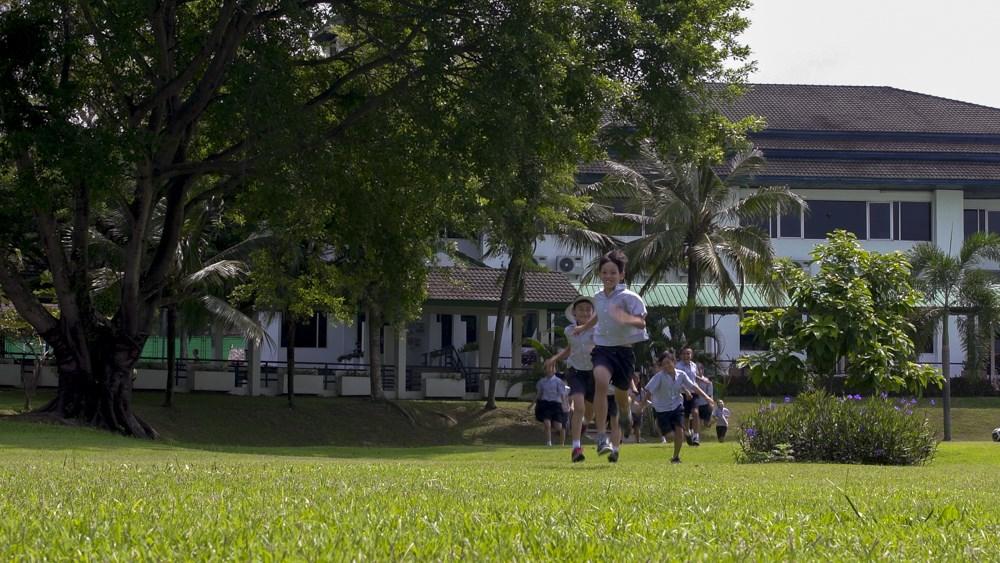
Curriculum overviews
To keep our parents informed of the children’s learning, teachers need to send a weekly curriculum overview via Seesaw message, which is specific to their year/class. In these, teachers communicate the learning objectives of PYP, Literacy, Maths and Thai for the upcoming week using a specific template. These need to be sent on a Friday for the following week and saved within the weekly overview Google folder.
To see an example weekly curriculum overview, click here.
Seesaw messages
Teachers can message parents about their students’ progress, behaviour, attendance concerns, reminders etc.. using the personal messaging service on Seesaw. Likewise, parents will tend to contact teachers this way as the messaging service uses translation software to make communication easier for both parties. Each Friday, teachers are encouraged to send a personalised ‘Feel Good Friday’ message to at least one parent, celebrating the achievement of their child to promote our school culture of care and success.
What’s on
Similar to the teachers’ ‘What’s On’, the Head of Primary will send out weekly updates about school events and important information. This is shared to parents via ‘Schoolzine’, an app, and will also be shared with teachers via email each Friday.
Reports and parent conferences
At the beginning of the academic year, we invite parents to a ‘Meet the Teacher’ event, where they will get the opportunity to meet their child’s teacher, who will give them a brief presentation about a typical school day and what to expect throughout the year in terms of curriculum, communication, homework expectations and any planned residentials.
For any new child joining our school, a ‘Settling In’ report will be emailed to parents within the first month. This will be coordinated by Pastoral leaders, who will offer more information about the nature of these reports in Term 1.
Each term, reports are sent to parents, to communicate their child’s attainment, progress and attitude towards learning. After Term 1 reports, there will be a ‘Parent-Teacher Conference’ in September and a ‘Student Led Conference’ in March, after Term 2 reports are sent. More information about the ‘Student Led Conference’ will be shared in Term 2 by Faye Wood (PYP Coordinator).
When will I be able to access emails, ISAMS registers and access to photocopiers?
During the orientation days, Rey Marfil (IT support) will organise a school laptop for new teachers and will provide usernames and passwords for you to access your emails, registers and photocopiers. Due to data protection, we are not able to share this information until your arrival.
Where
can I buy food for lunch?
Staff purchasing lunch from the canteen will be issued a card for payments during the orientation days, as we operate a cashless system via the Siam Caterers app. You can also purchase food from the coffee shop ‘Take5’, located in the school grounds. Please note, during the orientation days, lunch will be provided.
Where do I park?
Staff can park to the rear of the school campus, either by the swimming pool or behind the TB1 building. Parking is not available at the front of the school, as parking is limited to parents.
I don’t drive, what transport options are available?
Most teachers drive into school using motorbike or car, as the school does not have any public transport options. Staff, who don’t drive, can use the school buses by contacting Khun BC (Facility Manager) or may want to hire a driver for their own personal transport.
Is there a staff room?
There is a staff room in the reception building, upstairs. Here, you can find tea/coffee, cooking equipment/utensils, photocopiers, sofas and pigeon holes for any post.
How will I get paid?
During your orientation days, the HR department will assist in setting up a Thai bank account (SCB). Each month, you will get paid in Thai Baht into your SCB account and you can access your payslips using the ‘MAS HR’ app. The HR department will offer more information.
How do I arrange my visa/s?
The HR department is incredibly helpful and will assist any visa applications for you and your dependents during orientation. Throughout the year, they will remind you about your 90 day check in with immigration and how to navigate re-entry permits.
When will I be able to prepare my classroom?
During the INSET and orientation days, there will be time available in the itinerary to prepare your classroom. Teaching Assistants will also be at hand to help you to prepare displays, resources and to move any furniture. Displays advertise our educational ethos and should therefore be of a high standard, therefore please seek our ‘Displays essential agreement’, by clicking here.
When will I know more information about my class?
Due to data protection, the school cannot share personal information about any students before your arrival. During the orientation days, class lists, support plans and handover notes will be shared with you so you can prepare and plan, before the children’s first day back.
How can I access the online platforms and apps mentioned in the handbook?
These will be shared with you during the orientation days. Access to any online platforms and apps for Literacy, Maths, assessment and CPD will be shared by Faye Wood and Cindy De Borger will share logins for Seesaw. We will try our best to stagger these and align their setup during CPD sessions so you are not overloaded with emails!
How can I access school policies?
All school policies can be found on the GV landing homepage, when you open your Google browser on your school laptop, by navigating the ‘GV Local Policies’ page. For now, you can access the most relevant policies before your arrival, using links in this handbook.
How
is the school inspected?
The school is accredited by the Education Endowment Fund (EDT) and is a IB PYP authorised school. As a part of the EDT process, a UK based consultant visits the school annually to monitor and assist development. Last academic year, the school received an IB evaluation as per the 5 year year cycle. Teachers will be involved in all aspects of both processes – be that as individuals or in working parties.

